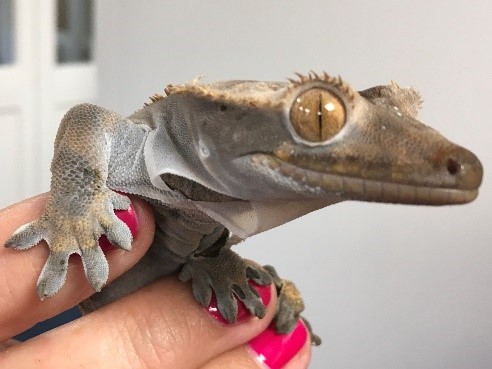Inclusion & Mental Health Team
Our school has an Inclusion Team comprising
Deputy Head Teacher, Mrs Rowena Evett-Collins
Director of Mental Health and Well-being, Mrs Hollie Edwards
Relational Mentor, Mrs Caroline Gower
SENCO, Miss Sammy Black
SENCO Assistant, Mrs Tracey Hewitt
Georgina Parsons, Learning Hub Teacher
At Herne Bay Junior School, we strongly believe children are entitled to an education that enables them to make progress, achieve and become confident individuals.
The Inclusion Team are responsible for making sure children identified with additional learning, emotional, behavioural or physical needs are supported in the best possible way. We have a set of core values which help our pupils become creative, independent learners, working towards developing their potential in every aspect of their lives. The Inclusion Team encourages and enables the development of these values, which are building blocks for a sense of self-esteem, emotional and physical wellbeing, creativity, expectation, resilience, independence, reflection, enjoyment, aspiration, collaboration and risk taking.
These values give our children the skills to enjoy and progress through their education and on into their working lives with a sense of achievement and self-worth.
Rowena Evett-Collins is our Deputy Headteacher and Lead for Inclusion
My position involves working very closely with teaching staff and all members of the Leadership Team, Mental Health and Well-being Team and SEN Team in order to aid the progress of all children with any additional needs within the school. At Herne Bay Junior School, we successfully create a culture within the school that values all pupils, allowing them to feel a sense of belonging and make it possible to talk about any problems in a non-stigmatising way.
Our achievement of the Gold Carnegie Mental Health Award is an indication of our commitment to support and improve the mental health of all. It is the responsibility of all members of school staff and community to promote good mental health at every opportunity. This part of my role involves working alongside our Director of Mental Health and Wellbeing to establish a whole school approach to mental health, including preventative activity and promotion of good mental wellbeing and resilience among pupils and staff. This involves providing continuous professional development for staff wherever possible. Equally, I will be working with outside agencies and professionals to provide interventions for pupils identified with poor mental health.
Within school I am the lead DSL (Designated Safeguarding Lead). As DSL I am the main point of contact for staff or parents who have concerns about any pupil’s safety or wellbeing.
At Herne Bay Junior School, the Inclusion Team work very closely to provide advice and guidance for families to enable them to support their children to make progress in their learning. Between us, we are able to support parents and carers with learning, additional needs, behaviour, emotional issues and wellbeing.
Quite often you will meet with two of us so that we can share our expertise and ideas. We provide an open door policy and this means you would be able to contact us or meet with us easily should you need to. You will find us at the gate in the mornings and home time.
If you have any questions or queries about your child’s wellbeing and/or education, please do not hesitate to contact us.
The Mental Health and Well-being Team
Hollie Edwards is our Director of Mental Health and Well-being
As the Director of Mental Health and Wellbeing, I work alongside the whole school community to ensure, first and foremost, that our children understand what mental health and wellbeing is. Our PSHE programme teaches the children emotional literacy as part of our whole-school approach to mental health and wellbeing. The PSHE curriculum embodies a positive philosophy to nurture children’s development as compassionate and well-rounded human beings, with their wellbeing at the heart of all learning.
To meet the needs of our children and families, I regularly deliver training to staff and parents/carers on a range of topics related to mental health and wellbeing. Research shows that there is a direct correlation between positive mental health and optimum educational outcomes, therefore, the adults around them (at home and at school) benefit from understanding child development and the attachment theory. As care givers, we can offer children the security and relationships needed to meet their wellbeing and mental health needs. In doing so, we also help them to become independent, resilient, life-long learners.
Our school is fortunate to have an NHS Emotional Wellbeing Practitioner (EWP) that works in our school for one day each week. I work closely with Clare (our EWP) to ensure she meets the needs of our school. Her role is varied and there are different ways she can offer support to the whole school. This includes, but is not limited to:
- Parent Intervention (1:1 or Group Sessions) for Child Anxiety or Child Behaviour
- Parent Workshops (online or face-to-face)
- Staff Training
- Signposting, and referring, to other agencies
Finally, an important part of my role within school is facilitating individual and group supervision for staff. Supervision gives staff an opportunity to reflect on their practice, explore any worries or concerns they may have about the welfare and development of all children and contribute towards highly effective practice and increased staff confidence. This supports the development of a safe setting where children are safeguarded from harm. In addition, supervision supports staff and pupil wellbeing as part of a whole school approach to mental health and wellbeing.
Caroline Gower is our Relational Mentor
Life as Relational Mentor can be very varied and challenging but never boring…
My role within the school is to promote positive behaviour; it’s about taking the time to listen and talk to the child. Most issues on the playground are typical childlike behaviours, sometimes children do show other behaviours which may lead to poor choices. In these cases, I will then talk to the class teacher and/ or other members of the SEN and Mental Health and Well-being Teams. Between us we can find the best way to help and support the child/children.
In my role children do come and find me for all sorts of reasons; just for a chat about a worry or a concern they may have. Just listening to them is all it takes sometimes. Being able to point the child in the right direction or support them to make the right decision in regard to their behaviour is always so rewarding.
Within the team, we encourage children to follow the school behaviour policy. This may lead to formal sanctions, such as time removed from the playground, but this will be closely supported by signposting to other key members of staff if needed or taking part in some Restorative Justice work.
The SEN Team
Sammy Black is our SENCO
My role within school is to ensure that all children identified with a special educational need (SEN) have access to available provision in order to support their success at Herne Bay Junior School. this is achieved via meetings with external professionals such as Speech and Language Therapists, class teachers, children and their families. My job also involves supporting families to identify needs of children who present with behaviours but do not currently have a diagnosis and/or are not already on the SEN Register. To ensure this happens, I liaise closely with parents, outside professional agencies and class teachers regarding each child individually. Discussions we have might lead to referrals for assessments and/or interventions being provided in school. I provide support and training to teachers and TAs to ensure they have the skills, understanding and knowledge to deliver specific strategies and interventions in and out of class and feel confident to do so. Monitoring is a vital part of my role to ensure children are progressing in all areas of the curriculum and that their current level of support is correct for their specific needs.
For children already on the SEN register and for those whose parents or teacher have concerns I closely monitor, assess and make referrals. This might include in-school observations and screeners or for children to be seen by professionals such as educational psychologists, specialist teachers, occupational and speech and language therapists and ensure all recommendations are acted upon and reviewed regularly, allowing all children to access the curriculum and have the chance to progress and achieve. I attend professional meetings to make sure correct information sharing is provided and the needs of the child are made clear.
Being a SENCO can at times be very challenging due to specific boundaries and regulations governing SEN and disabilities but ultimately it is hugely rewarding. I am very privileged to be in a position where I am able to see children grow in confidence, achieve academically and succeed in many more areas of their life. It’s very rewarding to action changes that positively impact a child.
Tracey Hewitt is our SENCO Assistant
I have worked in mainstream primary education for more than 20 years supporting the teaching and learning of children, including children with SEND (Special Educational Needs and Disabilities).
My role as SENCo Assistant and being part of the Inclusion and Mental Health Team means I work very cosely with colleagues to identify and plan support for individual children. I assist in identifying specific needs through assessment and/or observation for children that may need additional interventions. Interventions used in school include: Speech, Language & Communication, Fine Motor Skills, Gross Motor Skills, Read Write Inc, Memory Skills, Sensory difficulties, Phonic difficulties, Dyslexia and Dyscalculia screening. The information that these screenings provide ensures we are putting into place a tailored individualised plan for each child.
I work closely with teachers and teaching assistants offering support, training and providing strategies and resources, in order for them to support children in their behaviour, learning and emotional & mental health.
I may also meet with parents to discuss strategies and interventions that we are putting in place to support their child’s education.
One of the most important and rewarding parts of my role is supporting the children, our open door policy means that children can discuss any concerns/questions or worries that they have and through discussion, find a solution or pathway to allay their fears. This includes encouraging and enabling them to develop through building on their own self-esteem, confidence and independence.
George Parsons is our Learning Hub Teacher
I have been working with children for 26 years. Initially, my career began in Nursery where I learnt the importance of seeing the individuality of each child. I studied an early Years degree at Christchurch and then completed a PGCE in Key Stage 1 and 2. I have worked at Herne Bay Infants and St Mary’s School in Whitstable.
I am now based in the Learning Hub where my knowledge of the Early Years Foundation Stage and Key Stage One curriculum is invaluable as I am able to ensure that children have access to the stages of learning they may have missed due to Covid. We are supporting children using various models that enable them to follow a hybrid school journey with time in class and time in the Hub. Children’s needs are supported and their well-being is prioritised to allow them access to the curriculum that is designed individually at their stage.

Colin- Wellbeing Gecko
Hello, my name is Colin. I am a crested gecko and live with Mrs Evett-Collins. Children like to spend time with me if they are anxious or worried. I help them to feel calm and happier. I like to walk up your arm and I am really good at jumping

Ivy- Well-being Dog
Hello, my name is Ivy and I am Herne Bay Junior school’s school dog. I live with Mrs Kingman and come into school most days each week.
My favourite times are meeting the children in the morning as they come into school and spending time helping and running around with the children on Forest afternoons. I love to jump into the pond on hot days!
Spending calm time with the children is lovely too.
Hamish- Well-being dog
Hello, my name is Hamish. I am a Cairn Terrier and live with Mrs Evett-Collins.
I come into school for a morning or an afternoon in the week.
Cairns are known to be mischievous and curious. I think everyone and everything is my friend and I want to play with them.
I am also very good at sleeping.
